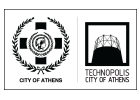
Science or Science Fiction?
Nektarios Tavernarakis
Director of the Institute of Molecular Biology and Biotechnology, at the Foundation for Research and Technology, and Professor of Molecular Systems Biology at the Medical School of the University of Crete
Oftentimes scientific discoveries are communicated to the public in a rather inaccurate and grossly exaggerated manner. While, in most cases, this is the end result of an honest attempt to simplify complex scientific concepts and findings for the lay audience, impress and attract attention to the relentless efforts of researchers, it, nevertheless, generates an inaccurate representation of what has been achieved and misconceptions about the significance, the relevance and the consequences of scientific discoveries. This phenomenon is becoming even more pronounced in recent times, with the advent of new and highly effective means of dissemination, including social media and the internet in general. The obvious outcome of such misinformation is the propagation of overinflated claims about the progress achieved and not surprisingly, unreasonable expectations among the public, relevant to the actual contribution of scientific research towards addressing important and emerging societal, quality of life and environmental challenges. Ultimately, miscommunication becomes detrimental to science endeavors, as it undermines the credibility of research efforts and the trust of the public to science, particularly when the bubble bursts. We will discuss where science ends and where science fiction starts, focusing mainly on modern biomedical research.
Organisation: Foundation for research and technology
Nektarios Tavernarakis is the Director of the Institute of Molecular Biology and Biotechnology, at the Foundation for Research and Technology, and a Professor of Molecular Systems Biology at the Medical School of the University of Crete, in Heraklion, Greece. He is also heading the Neurogenetics and Ageing laboratory of the Institute. He earned his Ph.D. degree at the University of Crete, and trained as a postdoctoral researcher at Rutgers University in New Jersey, USA. His research focuses on studies of neuronal function and dysfunction. His main interests are the molecular mechanisms of necrotic cell death in neurodegeneration and senescent decline, the molecular mechanisms of sensory transduction and integration by the nervous system, the interplay between cellular metabolism and ageing, and the development of novel genetic tools for biomedical research. For his scientific accomplishments, Nektarios Tavernarakis has received several notable scientific prizes including a European Research Council (ERC) Advanced Investigator grant award, the European Molecular Biology Organization (EMBO) Young Investigator award, the Bodossaki Foundation Scientific Prize for Medicine and Biology, the Alexander von Humboldt Foundation, Friedrich Wilhelm Bessel research award, the Empeirikeion Foundation Academic Excellence Prize, the Research Excellence award of the Foundation for Research and Technology, and the BioMedical Research Award of the Academy of Athens. Prof. Tavernarakis is also an elected member of EMBO and Academia Europaea.





